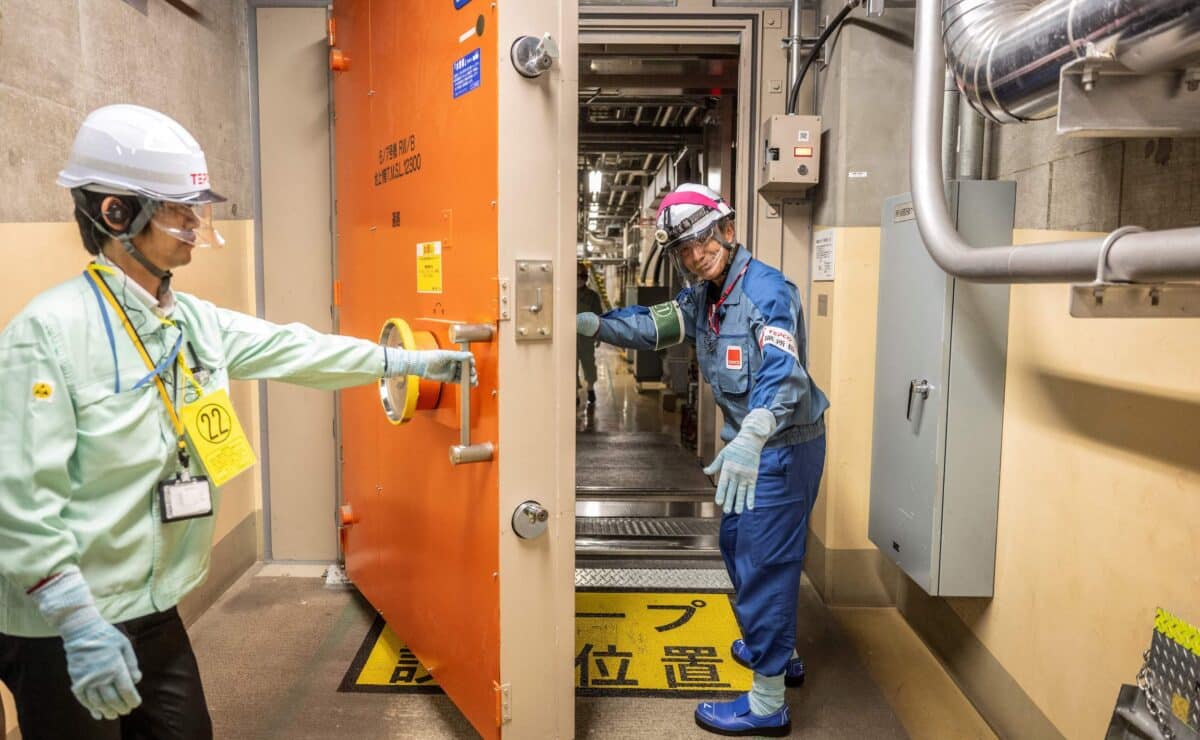Japan allows longer nuclear plant lifespans

This picture taken on August 6, 2024 shows Masaki Daito (R), deputy superintendent of the Kashiwazaki-Kariwa nuclear power station. He is opening a watertight door inside the unit 7 reactor building at the Kashiwazaki-Kariwa nuclear power station in Kashiwazaki, Niigata. (Photo by Yuichi YAMAZAKI /AFP)
TOKYO, Japan — A law allowing nuclear reactors to operate beyond 60 years took effect in Japan on Friday. This happened as the government turns back to atomic energy 14 years after the Fukushima catastrophe.
The world’s fourth-largest economy is targeting carbon neutrality by 2050 but remains heavily reliant on fossil fuels. This is partly because many nuclear reactors were taken offline after the 2011 Fukushima meltdown.
The government now plans to increase its reliance on nuclear power. This in part to help meet growing energy demand from artificial intelligence and microchip factories.
READ: Make or break for nuclear energy
The 60-year limit was brought in after the 2011 disaster. It was triggered by a devastating earthquake and tsunami in northeast Japan.
Under the amended law, nuclear plants’ operating period may be extended beyond 60 years, in a system similar to extra time in football games. This is to compensate for stoppages caused by “unforeseeable circumstances”, the government says.
This means, for example, that one reactor in central Japan’s Fukui region, suspended for 12 years after the Fukushima crisis, will now be able to operate up until 2047. That would be 72 years after its debut, the Asahi Shimbun daily reported.
But operators require approval from Japan’s nuclear safety watchdog for the exemption. The law also includes measures intended to strengthen safety checks at ageing reactors.
The legal revision is also aimed at helping Japan better cope with power crunches. This, after Russia’s invasion of Ukraine sparked energy market turmoil.
Japan’s Strategic Energy Plan
Japan’s Strategic Energy Plan had previously vowed to “reduce reliance on nuclear power as much as possible.”
But this pledge was dropped from the latest version approved in February. It includes an intention to make renewables the country’s top power source by 2040.
READ: Delays in nuclear bill to impact Philippines’ energy goals
Under the plan, nuclear power will account for around 20 percent of Japan’s energy supply by 2040. That means an increase from 5.6 percent in 2022.
Also in February, Japan pledged to slash greenhouse gas emissions by 60 percent in the next decade from 2013 levels. It is a target that campaigners decried as far short of what was needed under the Paris Agreement to limit global warming.
Japan is the world’s fifth largest single-country emitter of carbon dioxide after China, the United States, India and Russia.